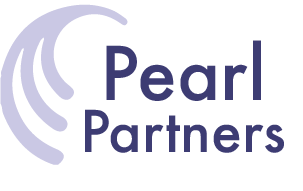Think about the last focus group you ran or attended. Be honest with yourself. Why did you have the focus group? And what, exactly did you learn from it?
I always tell my clients that focus groups serve a real, and valuable purpose, and that they must be used judiciously to make sure we're using the right tool for the task at hand. But then I noticed that I'm using them less and less frequently. They don't seem to be very helpful in learning deeply about consumers' lives. One-on-one interviews are much more helpful to do that. They also don't seem to be very helpful in evaluating new product concepts, as group-think often obscures real opinions. Add to that, the numbers are too small to use them to quantitatively infer the behavior of the larger population with a high degree of confidence.
So why are we using them? I had one client tell me that she used focus groups because it was an easy way to get others in the company to participate. They could drop in and out from behind the glass, and at least have some exposure to their consumers. Another client told me that they are used in her company because they were an "accepted" method of gathering market research, and they could easily obtain the funding to run them.
I can see using focus groups when I have an idea of what I want to learn, and I want to collect some basic information to help me to know which areas I'd like to probe more deeply. It's a safe, middle of the road tool. What I'm finding, however, is that as we become more focused on who our consumers are and we become more adept at using online tools to collect this basic learning, the focus group is becoming less relevant for me.
I'm curious to know if others are having similar experiences. Is there greater value we should be getting from focus groups? Or are they a tool that will become less relevant in the future?

Hi Ellen
I often wonder about this myself. In our research practice we are using a myriad of qual techniques – I went through a phase of not wanting to do any groups about five years ago and actively recommending clients against them, but found I was often missing that great interaction you get from people when they discuss an idea. I use them frequently now and these times seem to be;
1) when a good deal of group work is required; building brand positioning platforms, coming up with ideas around in-store experience, etc. These sessions though tend to be run more like workshops, and not like a traditional probe and bounce focus group.
2) when I am doing global research. Tight timings often mean one-on-ones or an ethnographic approach is not feasible – I often only get one or two days in a city, so focus groups are just practical
3) agree with one of your collegue’s comments above about clients being able to get engaged / exposed to an idea; they buy in often more to a project if they have heard one or two consumers voice an opinion (and it’s often easier to get them to come to a group than to come to an ethnographic session and engage face to face with their consumers!!
4) we’ve also been using them quite successfully in the midst of ideation sessions. End of day one, taking worked up ideas into one or two groups to get a sense-check on where we are heading, which is often refreshing (and needed) after a day of hot housing without any outside common-sense.
I did think a while back that’d I’d be doing less focus groups than I was, but I feel it’s probably the same amount. The techniques we are using and styles of groups we run though as changed dramatically.
Yes Kelly, you’ve confirmed where I’m coming from. I’ll start calling it the evolution of the focus group. What you’re pointing to is the fact that yes, we do sometimes need to get a group together. And you’re also confirming that you no longer expect to get the deepest insight from them. They serve another, equally useful purpose entirely. Thanks for making the point.